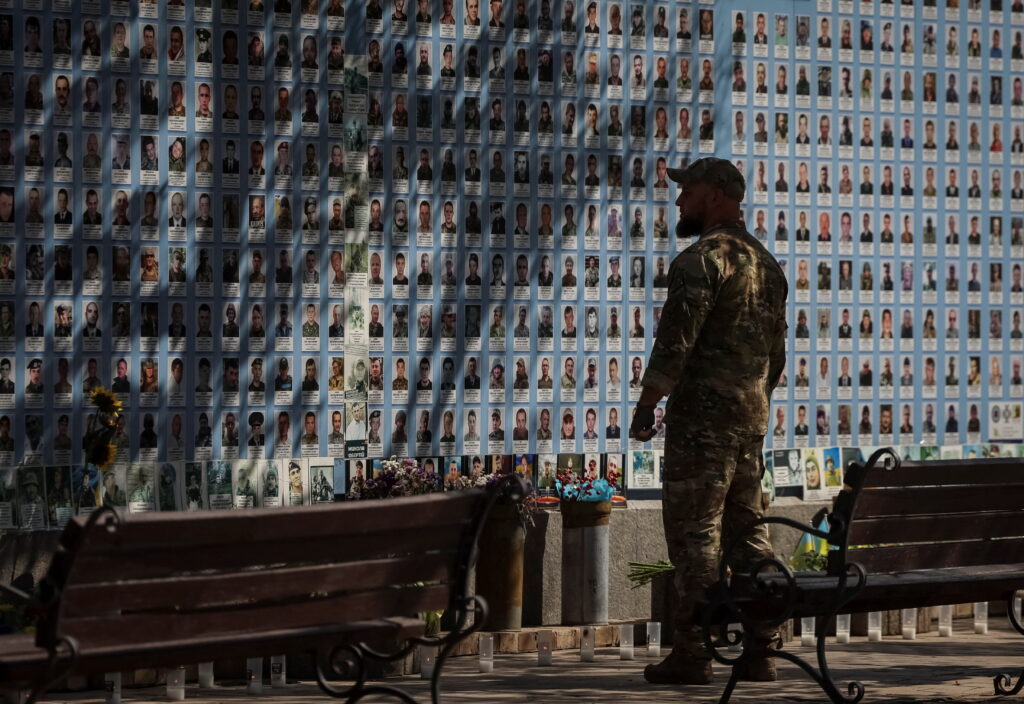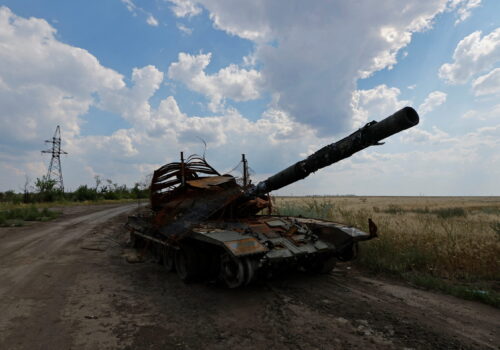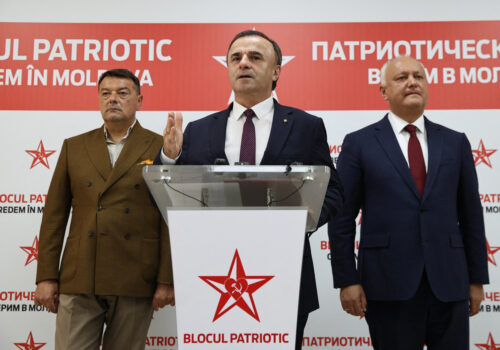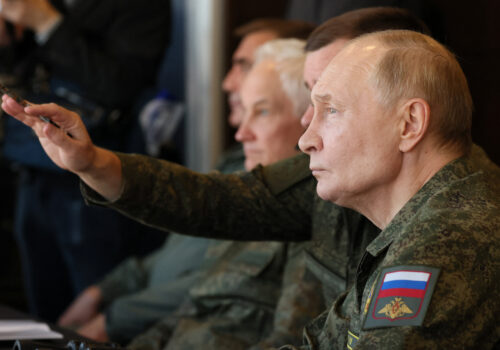Ever since US President Donald Trump initiated peace talks with Moscow in early 2025 in a bid to end the war in Ukraine, there has been much debate over the peace terms Russian President Vladimir Putin may be prepared to accept. In order to reach a lasting settlement, however, it is also vital to understand Ukraine’s expectations for any potential agreement.
Since the start of Russia’s full-scale invasion in February 2022, Ukrainian perceptions of victory have evolved in line with the country’s changing fortunes on the battlefield. During the initial weeks of the war, any notions of victory were primarily associated with national survival. The immediate objective was to stop the Russian advance on Kyiv and save the Ukrainian capital, thereby thwarting the central objective of Putin’s invasion and safeguarding Ukrainian statehood.
Ukraine’s spring 2022 victory in the Battle of Kyiv was followed by a series of further military successes later that year, including a stunning counteroffensive in the Kharkiv region and the liberation of Kherson. This led to growing public confidence that Ukraine’s territorial integrity could be fully restored within the country’s internationally recognized borders. As the first anniversary of Russia’s invasion approached, a consensus began to take shape across Ukraine that victory meant the complete end of Russian occupation and the return of all territory to Ukrainian control.
One year later, the costly failure of Ukraine’s summer 2023 counteroffensive led to a noticeable lowering of expectations. With the terrible human cost of the war continuing to mount and little progress to report on the battlefield, perceptions of victory began to shift once more. While the desire to liberate the entire country remained strong, many Ukrainians began to acknowledge that temporary territorial concessions may prove necessary in order to end hostilities. This helped to refocus attention on the need to establish a lasting peace.
Stay updated
As the world watches the Russian invasion of Ukraine unfold, UkraineAlert delivers the best Atlantic Council expert insight and analysis on Ukraine twice a week directly to your inbox.
For the past year, Ukraine’s main demand has been for credible security guarantees to remove the threat of future Russian aggression. This is widely recognized as essential for the country’s continued viability as an independent state. While Ukraine’s eventual objective remains NATO membership, the current goal is to secure commitments from the country’s partners that confirm Kyiv’s irreversible Euro-Atlantic integration and convince the Kremlin to abandon its imperial agenda. Only then will genuine peace be possible.
In addition to expectations regarding security guarantees, Ukrainians also seek accountability for war crimes committed during Russia’s invasion. Many in today’s Ukraine feel that justice should be central to any postwar settlement. They argue that the immense sacrifices of the war must not be in vain, and believe Russia needs to pay for the devastation it has caused in Ukraine.
Calls for a just peace settlement create significant challenges for Ukraine’s political leadership. If the Ukrainian authorities fail to address demands for accountability, this could fuel political divisions and lead to social tensions, especially among veterans, military families, and communities most directly affected by the invasion. Any peace deal that feels like a betrayal could destabilize the entire country and radicalize Ukrainian public opinion, with unpredictable and potentially dangerous consequences for Ukraine.
Eurasia Center events

As Ukraine prepares for a fourth wartime winter, Ukrainians continue to debate what would represent acceptable peace terms. It is currently possible to identify some key trends. While there has been a clear move away from the optimistic interpretations of victory that dominated the debate during the first year of the war, relatively few Ukrainians appear ready to accept peace on Russian terms. Instead, there is a sense that Ukraine must find ways to fight on if necessary until it can reach a settlement that safeguards the country’s future freedom and security.
Ukrainians are acutely aware that Russia remains determined to destroy Ukraine as a state and as a nation. They understand that the war will not truly be over until the Kremlin has been decisively deterred from pursuing its imperial ambitions.
While any progress toward a ceasefire would likely receive widespread support from the Ukrainian public, this would not satisfy their demands for a longer term solution to the threat posed by Russia. Indeed, some believe a pause in hostilities that did not lead to a more permanent settlement could create new risks and undermine the sense of common purpose that has played such an important part in maintaining Ukrainian public support for the war effort.
With the recent US-led peace initiative now running out of steam and Europe deeply reluctant to risk direct military confrontation with Russia, there is a growing realization among Ukrainians that no external actor can fully guarantee Ukraine’s security. International support has been absolutely vital since 2022 and remains indispensable, but there can ultimately be no substitute for a strong and self-sufficient Ukrainian military backed by a resilient and united population.
Ukrainians recognize that they cannot allow their national survival to hinge on the ever-changing political and geopolitical dynamics in Western capitals. Instead, Kyiv must look to strike a balance between long-term international security partnerships and powerful domestic deterrence. Peace with Putin’s Russia is possible, but it must be peace through strength.
Yaroslava Shvechykova-Plavska is a lecturer at the Educational and Scientific Institute of International Relations at Taras Shevchenko National University in Kyiv. This article is based on the Security Guarantees for Ukraine project, undertaken with the support of the International Renaissance Foundation. It represents the views of the author and does not reflect the position of the International Renaissance Foundation.
Further reading
The views expressed in UkraineAlert are solely those of the authors and do not necessarily reflect the views of the Atlantic Council, its staff, or its supporters.

The Eurasia Center’s mission is to enhance transatlantic cooperation in promoting stability, democratic values, and prosperity in Eurasia, from Eastern Europe and Turkey in the West to the Caucasus, Russia, and Central Asia in the East.
Follow us on social media
and support our work
Image: A serviceman visits the Memory Wall of Fallen Defenders of Ukraine as Ukrainians mark the Day of Remembrance of Ukraine's Defenders, amid Russia's attack on Ukraine, in Kyiv, Ukraine. August 29, 2024. (REUTERS/Gleb Garanich)




